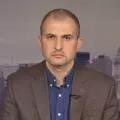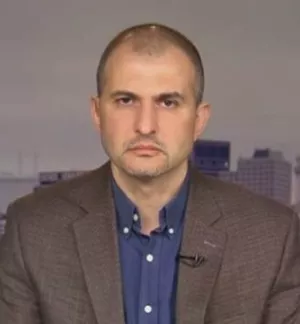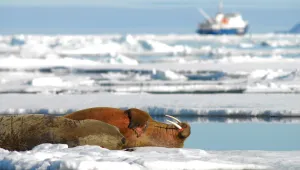This August, Russia, Georgia and its breakaway provinces of South Ossetia and Abkhazia commemorate the fourth anniversary of the war that they fought in 2008.
But while the mood has been predictably festive in Moscow and the two provinces, which prevailed in that war, there has already been, as Russians say, at least one spoonful of tar in the barrel filled with honey. Anonymous authors have posted a ‘documentary’ on Youtube, in which three former high-ranking Russian commanders accuse Russia’s then Commander-in-Chief Dmitry Medvedev of indecisiveness during the initial stage of the 2008 war. The documentary doesn’t only criticize Medvedev, but also lauds his mentor and Russia’s current Commander-in-Chief Vladimir Putin as playing a decisive role in preparing a plan to repel Georgia and then ordering its execution. The incumbent president’s response to these claims indicates that his PR strategists may be seeking not only to boost Putin’s ratings, but also to offer a more convincing explanation as to why he had to come back to the Kremlin four years after stepping down and backing Medvedev to succeed him as Russia’s president.
Of the three generals featuring in the documentary, it is ex-Chief of General Staff and former deputy secretary of the Security Council Yuri Baluyevsky who is most blunt in his assessment of Medvedev’s conduct four years ago. According to Baluyevsky, only after then-Prime Minister Putin called from Beijing and “distributed kicks in the backside,” did Medvedev authorize implementation of an existing contingency plan for responding to use of force by Georgia.
A shorter version of the film, titled “Medvedev’s cowardice killed 1,000 people,” was posted on August 5 and has attracted over 300,000 hits since then. The full version, which is titled “the Lost Day of War,” was posted two days later on the eve of Medvedev’s August 8th visit to Tskhinvali, the South Ossetia capital.
In comments released on August 9, Medvedev dismissed the generals’ claims as lies, claiming he ordered a missile strike on the Georgian forces at 4 a.m. on August 8, 2008, which was less than four hours after the Georgian troops launched a ground assault on Tskhinvali, according to Georgia’s own version of the war shared with EU’s Independent International Fact-Finding Mission on the Conflict in Georgia (IIFFMCG). According to the official Russian version of events shared with IIFFCG and incorporated in the mission’s 2009 report, however, the Russian leadership didn’t order intervention until about 2 pm on August 8.
It should be noted, however, that there is strong evidence that Russian troops began to deploy into South Ossetia through the Roki tunnel even before Georgian President Mikheil Saakashvili ordered the ground offensive.
As IIFFMCG’s 2009 report notes, “there are a number of reports and publications, including of Russian origin, indicating … the presence of some Russian forces in South Ossetia, apart from the Russian PKF (peacekeeping force) battalion, prior to 14.30 hours on 8 August 2008.”
Communications between South Ossetian border guards that occurred shortly before 4 am on August 7 and were intercepted by Georgian forces indicate that Russia’s 135th Motorized Rifle Regiment was moving into South Ossetia through the Roki tunnel at that time, according to the New York Times. And one of this regiment’s officers – Capt. Denis Sidristy unwittingly confided to the Russian Defense Ministry’s Krasnaya Zvezda daily that his unit was already in South Ossetia on August 7. Russian troops began to rout the Georgian advance on August 8 with the Russian armor convoy entering Tskhinvali shortly after 4 p.m. that day. The next day Georgian forces began to retreat from the city.
My hunch is that Moscow must have learned in advance of Tbilisi’s plan to try to conquer Tskhinvali and positioned units so that they could rout the Georgian assault, but didn’t issue a public order for an intervention until the latter had progressed enough to create indisputable evidence that the Georgians had begun the war and that the Russian forces had to intervene to defend Russian peacekeepers and South Ossetians, the majority of whom hold Russian passports. If Medvedev were to officially order the military operation one day before he did – as authors and characters of the ‘documentary’ insist he should have done – then Russian troops would have had to engage Georgian forces before the latter had launched a ground assault. Such a move would have made it hard to argue that Russian forces were deployed to South Ossetia to “coerce Georgia to peace” as the Kremlin put it back then.
So the facts on the ground indicate that Medvedev didn’t stall much, if at all.
But why are then such respected generals as Baluyevsky, who have avoided strongly criticizing the political leadership in public, now, accusing Medvedev of indecisiveness?
My guess is that they could have been encouraged to vent their real or imaginary frustrations as part of a broader effort to contrast a ‘weak’ Medvedev with a strongman Putin.
Putin’s first public reaction to the ‘documentary’ also indicates there might be a well-orchestrated PR campaign underway. Putin was visiting a Russian province on August 7 when a press opportunity arouse and a RIA Novosti journalist asked the first question, inquiring about the documentary, which was not widely known at that time. Several more questions about the film followed. That a Kremlin pool correspondent for a state-controlled national news agency asked the first question about an obscure youtube upload on a subject hat had nothing to do with the purpose of Putin’s visit to the Leningrad region spoke for itself. It was also illustrative that in his answers Putin chose not to explicitly defend his protege’s record, skirting around the issue of indecisiveness altogether and seeking instead to detail his impact on the decision-making in the 2008 operation.
And if that was not enough, Putin took more questions on the subject the following day, this time confirming that he did call Medvedev and Defense Minister Anatoly Serdyukov twice from Beijing, on August 7 and 8, 2008. This disclosure is particularly illustrative because Putin was the prime minister at that time, so had no authority to issue instructions to the defence minister who reports to the president.
But why would the Kremlin orchestrate a PR ploy to discredit what Russians have earlier thought to be one of the few real accomplishments of Medvedev’s presidency?
Putin may be seeking to advertise his decisive role in the war to boost his credentials, which have been eroding in Russia in general and in Moscow in particular. An August 2012 poll by the respected Public Opinion Foundation shows that the share of Russians who trust Putin is lowest in the past nine years. Only 44% of Russians trust Putin compared to 55% in March 2012 and 47% in 2003, according to the web site of this respected pollster, which lists the Kremlin among its regular clients.
It might be also the case that Putin is not so much trying to reaffirm his lead role during Medvedev’s presidency, as he is trying to cut the man down to size. After all, Medvedev has continued to publicly opine about major issues of defence and foreign policy, which are the president’s prerogatives, and even didn’t rule out seeking the presidency again in spite of leaving the Kremlin to become prime minister in May.
One prime reason behind the campaign could be a desire by the Kremlin to offer a better justification to the Russian public of why Putin had to return to the presidency in 2012 after stepping down and backing Medvedev as Russia’s new president four years earlier.
The two didn’t bother to offer any plausible justifiable explanation when announcing the job swap back in fall 2011, and that angered the Russian public, fueling street protests this past winter. What better justifies Putin’s return to the post of the Commander-in-Chief than revelations by respected generals that his predecessor proved to be an indecisive, ineffective national leader in times of war?
Simon Saradzhyan is a research fellow at Harvard Kennedy School’s Belfer Center. Previously, he worked as a researcher for East West Institute and as a consultant for the United Nations and World Bank. He has been deputy editor of the Moscow Times and Moscow correspondent for Defense News. He earned a Masters in Public Administration from Harvard Kennedy School in 2002.
Saradzhyan, Simon. “Allegations of Medvedev's Indecisiveness Help Justify Putin's Return to Kremlin.” Power & Policy Blog, August 10, 2012



